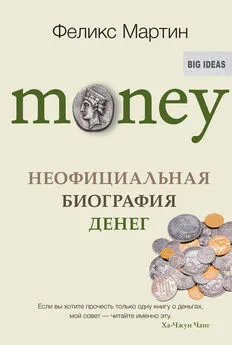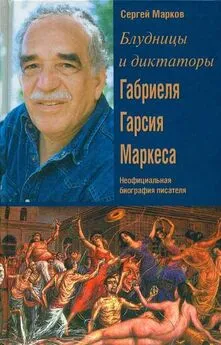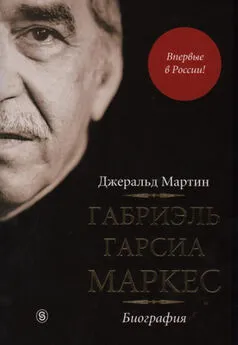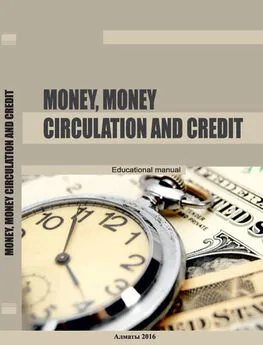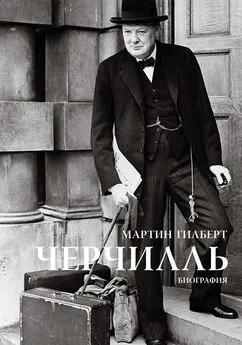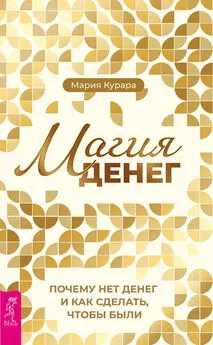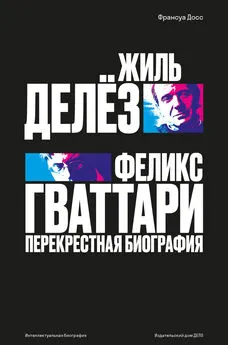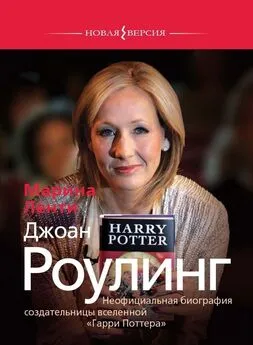Феликс Мартин - Money. Неофициальная биография денег
- Название:Money. Неофициальная биография денег
- Автор:
- Жанр:
- Издательство:Литагент Синдбад
- Год:2017
- Город:Москва
- ISBN:978-5-906837-32-5
- Рейтинг:
- Избранное:Добавить в избранное
-
Отзывы:
-
Ваша оценка:
Феликс Мартин - Money. Неофициальная биография денег краткое содержание
Отталкиваясь от максимы «Меньше всего о воде знает рыба», он считает, что «ведущие экономисты мира» страдают непозволительной узостью взгляда и просто «не видят за деревьями леса». Анализируя значительный исторический материал (от Древней Месопотамии до наших дней, включая опыт Афин, Спарты, средневековых Англии и Франции и даже Советского Союза), Мартин приходит к выводу, что деньги – это в первую очередь социальная технология, своего рода регулятор общественных связей, и основное их предназначение – сглаживать и устранять конфликты. Деньги должны помогать обществу одновременно решать две задачи: обеспечивать экономическое развитие и сохранять социальную стабильность.
Современный капитализм, по мнению Феликса Мартина, хорошо зарекомендовал себя как локомотив развития, но отдал контроль за деньгами банкам и техническим специалистам, увязшим в своих умозрительных теориях и излагающим их на непонятном обществу языке. Злоупотребление силой денег со стороны финансовых институтов приводит к жестоким экономическим кризисам, раздирающим современное общество.
Обладая широким историческим и культурным кругозором, автор наполнил книгу массой интересных сведений, не перенасытив специальной терминологией. Написанная ярким, живым языком, она заинтересует не только финансистов, экономистов, историков и культурологов, но и самую широкую читательскую аудиторию.
Money. Неофициальная биография денег - читать онлайн бесплатно ознакомительный отрывок
Интервал:
Закладка:
Hicks, J. (1937), ‘Mr. Keynes and the “Classics”: A Suggested Interpretation’. Econometrica 5(2), 147–59.
Hirschman, A. (1977), Te Passion and the Interests: Political Arguments for Capitalism Before Its Triumph . Princeton: Princeton University Press.
– (1991), Te Rhetoric of Reaction: Perversity, Futility, Jeopardy . Cambridge, MA & London: Belknap Press of Harvard University.
HM Treasury (2012), Public Expenditure Statistical Analysis 2012 . London: Te Stationary Ofce Limited.
Homer, S. (1968), Te Bond Buyer’s Primer . New York: Salomon Bros. & Hutzler.
Horsefeld, J.K. (1960), British Monetary Experiments . Cambridge, MA & Harvard University Press.
Hudson, M., and Van de Mieroop, M., eds (2002), Debt and economic renewal in the ancient Near East . Bethesda, MD: CDL Press.
Hudson, M., and Wunsch, C., eds (2000), Creating Economic Order: record-keeping, standardization, and the development of accounting in the ancient Near East – a colloquium held at the British Museum, November 2000 .
Huerta de Soto, J. (2006), Money, Bank Credit, and Economic Cycles . Auburn: Ludwig Von Mises Institute.
Humphrey, C. (1985), ‘Barter and Economic Disintegration’, Man 20(1), pp. 48–72.
Ilf, I. and Petrov, E. (1962) [1931], Te Golden Calf (tr. Richardson, J.). London: F. Muller.
International Monetary Fund (2006). Global Financial Stability Report 2006. Washington, DC: International Monetary Fund.
– (2012), Fiscal Monitor April 2012 . Washington, DC: International Monetary Fund.
Johnson, C., ed. (1956), Te De Moneta of Nicholas Oresme and English Mint Documents . London: Nelson.
Jones, D. (2006), Te Bankers of Puteoli . Stroud: Tempus.
Joplin, T. (1832), An Analysis and History of the Currency Question . London: James Ridgway.
Kay, J. (2009), Narrow Banking: Te Reform of Banking Regulation. Mimeo: available at http://www.johnkay.com/wp-content/uploads/2009/12/JK-Narrow-Banking.pdf.
Keynes, J.M. (1915a), ‘Te Island of Stone Money’. Economic Journal 25(98), 281–283.
– (1915b), ‘Te Works of Walter Bagehot – Review Article’. Economic Journal 25(99), 369–375.
– (1923), A Tract on Monetary Reform . London: Macmillan.
– (1930), A Treatise on Money . London: Macmillan.
– (1931), ‘Te Pure Teory of Money. A Reply to Dr. Hayek’. Economica 13(34), 387–97.
– (1936), Te General Teory of Employment, Interest, and Money . London: Macmillan.
Kindleberger, C., and Lafargue, J-P., eds (1982), Financial Crises : Teory, History, and Policy. Cambridge: Cambridge University Press.
Kindleberger, C. (1993), A Financial History of Western Europe . New York and Oxford: Oxford University Press.
– (2000) [1978], Manias, Panics, and Crashes: a History of Financial Crises . New York, NY & Chichester: Wiley.
King, M. (2002), ‘No money, no infation – the role of money in the economy’. Bank of England Quarterly Bulletin , Summer 2002.
– (2012), ‘Twenty Years of Infation Targeting’. Speech at the London School of Economics, October 9, 2012.
King, W. (1936), History of the London Discount Market . London: Routledge.
Knapp, G. (1924), Te State Teory of Money . London: Te Royal Economic Society.
Kotlikof, L. (2010), Jimmy Stewart is Dead: Ending the World’s Ongoing Financial Plague with Limited Purpose Banking . Hoboken, NJ: Wiley.
Kula, W. (1986), Measures and Men . Princeton, NJ & Guildford: Princeton University Press.
Laeven, L., and Valencia, F. (2012), ‘Systemic Banking Crises Database: An Update’. IMF Working Paper 12/163.
Law, J. (1705), Money and Trade Considered, with a Proposal for Supplying the Nation with Money .
– (1720), Te Present State of the French Revenues and Trade, and of the Controversy betwixt the Parliament of Paris and Mr. Law . London: J. Roberts.
Lee, W., ed. (1869), Daniel Defoe: His Life, and Recently Discovered Writings: Extending From 1716 to 1729 , Vol II. London: John Camden Hotten.
Lenin, V.I. (1965), Collected Works: available at http://www.marxists.org/archive.
Liddell, H.G., and Scott, R. (1996), Greek – English Lexicon . Oxford: Clarendon Press.
Locke, J. (1695), Further Considerations Concerning Raising the Value of Money, Wherein Mr. Lowndes’s Arguments for it in his late Report concerning An Essay for the Amendment of the Silver Coins, are particularly Examined . London: A. and J. Churchill.
– (2009) [1698], Two Treatises of Government (ed. Laslett, P.). Cambridge: Cambridge University Press.
Lowndes, W. (1695), A Report Containing an Essay for the Amendment of the Silver Coins : available at http://openlibrary.org/books/OL23329564M/A_report_containing_an_essay_for_the_amendment_of_the_silver_coins.
Luria, A. (1976), Cognitive Development: Its Cultural and Social Foundations. Cambridge, MA & London: Harvard University Press.
Macdonald, J. (2006), A Free Nation Deep in Debt: the Financial Roots of Democracy. Princeton, NJ & Oxford: Princeton University Press.
Macleod, H. (1882), Te Principles of Political Economy . London: Longmans, Green, Read, and Dyer.
Magnusson, L., ed. (1995), Mercantilism . London: Routledge.
Mandeville, B. (1705), Te Grumbling Hive, or, Knaves Turn’d Honest . London.
– (1988) [1732], Te Fable of the Bees, or, Private Vices, Publick Benefts , 2 Volumes. Indianapolis: Liberty Classics.
Markowitz, H. (1952), ‘Portfolio selection’. Journal of Finance 7(1), 77–91.
Martin, F. (2011), ‘Global High Yield: the Big Winner from the Banking Crisis’. Tames River Capital Monthly Newsletter. London: Tames River Capital.
Marx, K. and Engels, F. (1985) [1848], Te Communist Manifesto . London: Penguin.
Mauss, M. (1954), Te Gif: Forms and Functions of Exchange in Archaic Societies (tr. Cunnison, I.). London: Cohen & West.
Mayhew, N. (1999), Sterling: the Rise and Fall of a Currency . London: Allen Lane.
McCallum, B. (2012), ‘Te Role of Money in New Keynesian Models’. Banco Central de Reserva de Perú Working Paper 2012–19.
Meadows, A., and Shipton, K., eds (2001), Money and its Uses in the Ancient G r e e k W o r l d . Oxford: Oxford University Press.
Mehrling, P. (2005), ‘Te Development of Macroeconomics and the Revolution in Finance’. Mimeo: available at http://economics.barnard.edu/profles/ perry-mehrling/perry-mehrling-recent-papers.
– (2011), Princeton, NJ: Princeton University Press.
Mill, J.S. (1848), Principles of Political Economy: With Some of Teir Applications to Social Philosophy . London: J.W. Parker.
Mitchell Innes, A. (1913), ‘What is Money?’. Banking Law Journal 30(5), 377–408.
– (1914), ‘Te Credit Teory of Money’. Banking Law Journal 31(2), 151–68.
More, T. (1975) [1516], Utopia . New York: Norton.
Murphy, A.E. (1978), ‘Money in an Economy without Banks: the case of Ireland’. Te Manchester School of Economic and Social Studies 46(1), 41–50.
– (1997), John Law: Economic Teorist and Policy-Maker . Oxford: Clarendon Press.
– (2009), Te Genesis of Macroeconomics: New Ideas from Sir William Petty to Henry Tornton . Oxford: Oxford University Press.
Murray, A. (1978), Reason and Society in the Middle Ages . Oxford: Clarendon Press.
Murray, O. (1993), Early Greece. London: Fontana Press.
Nissen, H.J. (1988), Te Early History of the Ancient Near East: 9000–2000 BC. Chicago & London: University of Chicago Press.
– Damerow, P., and Englund, R.K., eds (1993), Archaic Bookkeeping: Early Writing and Techniques of Economic Administration in the Ancient Near East. Chicago & London: University of Chicago Press.
Ong, W. (1982), Orality and Literacy: the Technologizing of the word . London:
Methuen.
Ormazabal, K. (2012), ‘Lowndes and Locke on the Value of Money’. History of Political Economy 44(1), pp. 157–80.
Parker, R. (1996), Athenian Religion: a History . Oxford: Clarendon Press.
Parry, J., and Bloch, M. (1989), Money and the Morality of Exchange . Cambridge: Cambridge University Press.
Patinkin, D. (1956), Money, Interest, and Prices: an Integration of Monetary and Value Teory. Evanston, IL: Row, Peterson.
Paul, R. (2009), End the Fed . New York, NY: Grand Central Pub.
Pigou, A., ed. (1925), Memorials of Alfred Marshall . London: Macmillan.
Pozsar, Z., Adrian, T., Ashcraf, A., and Boesky, H. (2010), ‘Shadow Banking’. Federal Reserve Bank of New York Staf Report 458.
Pozsar, Z., and Singh, M. (2011), ‘Te Nonbank-Bank Nexus and the Shadow Banking System’. International Monetary Fund Working Paper 11/289.
von Reden, S. (2010), Money in Classical Antiquity. Cambridge: Cambridge University Press.
Reinhart, C., and Rogof, K. (2009), Tis Time is Diferent: Eight Centuries of Financial Folly. Princeton, NJ & Oxford: Princeton University Press.
Richards, R.D. (1958), Te Early History of Banking in England . London: Cass.
Roberts, R., and Kynaston, D., eds (1995), Te Bank of England: Money, Power and Infuence 1694–1994 . Oxford: Oxford University Press.
Rogof, K. (1985), ‘Te Optimal Degree of Commitment to an Intermediate Monetary Target’. Te Quarterly Journal of Economics 100(4), 1169–89.
Rolnick, A., Velde, F., and Weber, W. (1996), ‘Te Debasement Puzzle: An Essay on Medieval Monetary History’. Journal of Economic History 56(4), 789–808 Roseveare, H. (1991), Te Financial Revolution, 1660–1760. London: Longman.
Roseveare, H. (1991), Te Financial Revolution, 1660–1760 . London: Longman. Rosovsky, H., ed. (1966), Industrialization in Two Systems: Essays in Honour of Alexander Gerschenkron . New York, NY: John Wiley.
Sandel, M. (2012), What Money Can’t Buy: Te Moral Limits of Markets . London: Allen Lane.
Sargent, T., and Velde, F. (2002), Te Big Problem of Small Change . Princeton, NJ & Oxford: Princeton University Press.
Say, J.-B. (2001) [1803], A Treatise on Political Economy. New Brunswick, NJ & London: Transaction Publishers.
Schmandt-Besserat, D. (1977), ‘Te earliest precursor of writing’. Scientifc American 238(6), 50–58.
– (1979), ‘Reckoning before Writing’. Archaeology 32(3), 22–31.
– ed. (1992), Before Writing, Vol. 1. Austin: University of Texas Press.
Senner, W., ed. (1991), Te Origins of Writing . Lincoln, NE & London: University of Nebraska Press.
Seabright, P., ed. (2000), Te Vanishing Rouble: Barter Networks and Non-monetary Transactions in Post-Soviet Societies . Cambridge: Cambridge University Press.
– (2004), Te Company of Strangers: A Natural History of Economic Life. Princeton, NJ & Oxford: Princeton University Press.
Seaford, R. (1994), Reciprocity and Ritual in Tragedy: Homer and Tragedy in the Developing City-State. Oxford: Clarendon Press.
– (2004), Money and the Early Greek Mind. Cambridge: Cambridge University Press.
Читать дальшеИнтервал:
Закладка:
